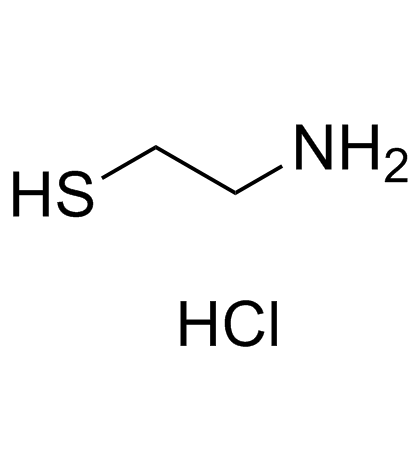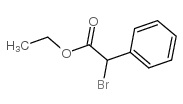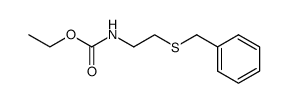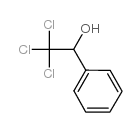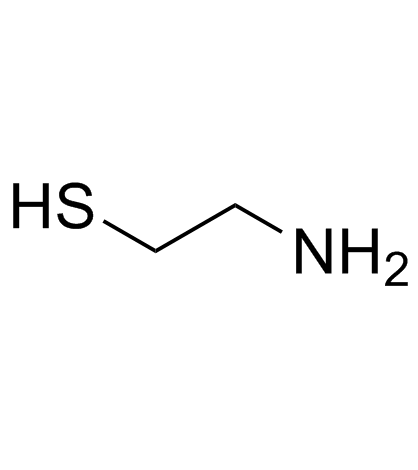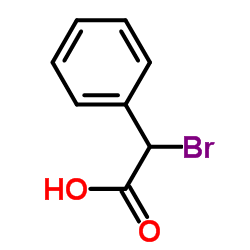70156-57-9
| Name | 2-phenylthiomorpholin-3-one |
|---|---|
| Synonyms |
2-phenyl-3-thiomorpholinone
2-Phenyl-thiomorpholin-3-on 2-Phenyl-3-oxo-1,4-thiazane 2-phenyl-1,4-thiazaperhydroin-3-one 2-phenyl-thiomorpholin-3-one 2-Phenyl-3-thiomorpholinon 3-Oxo-2-phenyl-thiomorpholin |
| Density | 1.34g/cm3 |
|---|---|
| Boiling Point | 432.5ºC at 760 mmHg |
| Melting Point | 158ºC |
| Molecular Formula | C10H11NOS |
| Molecular Weight | 193.26500 |
| Flash Point | 215.4ºC |
| Exact Mass | 193.05600 |
| PSA | 54.40000 |
| LogP | 1.91950 |
| Index of Refraction | 1.644 |
Synonym: Section 2 - COMPOSITION, INFORMATION ON INGREDIENTS
Risk Phrases: None Listed. Section 3 - HAZARDS IDENTIFICATION EMERGENCY OVERVIEW
Not available. Potential Health Effects Eye: May cause eye irritation. Skin: May cause skin irritation. May be harmful if absorbed through the skin. Ingestion: May cause irritation of the digestive tract. May be harmful if swallowed. Inhalation: May cause respiratory tract irritation. May be harmful if inhaled. Chronic: Not available. Section 4 - FIRST AID MEASURES Eyes: Flush eyes with plenty of water for at least 15 minutes, occasionally lifting the upper and lower eyelids. Get medical aid. Skin: Get medical aid. Flush skin with plenty of water for at least 15 minutes while removing contaminated clothing and shoes. Ingestion: Get medical aid. Wash mouth out with water. Inhalation: Remove from exposure and move to fresh air immediately. Notes to Physician: Treat symptomatically and supportively. Section 5 - FIRE FIGHTING MEASURES General Information: As in any fire, wear a self-contained breathing apparatus in pressure-demand, MSHA/NIOSH (approved or equivalent), and full protective gear. Extinguishing Media: Use water spray, dry chemical, carbon dioxide, or chemical foam. Section 6 - ACCIDENTAL RELEASE MEASURES General Information: Use proper personal protective equipment as indicated in Section 8. Spills/Leaks: Vacuum or sweep up material and place into a suitable disposal container. Section 7 - HANDLING and STORAGE Handling: Avoid breathing dust, vapor, mist, or gas. Avoid contact with skin and eyes. Storage: Store in a cool, dry place. Store in a tightly closed container. Section 8 - EXPOSURE CONTROLS, PERSONAL PROTECTION Engineering Controls: Use adequate ventilation to keep airborne concentrations low. Exposure Limits CAS# 70156-57-9: Personal Protective Equipment Eyes: Not available. Skin: Wear appropriate protective gloves to prevent skin exposure. Clothing: Wear appropriate protective clothing to prevent skin exposure. Respirators: Follow the OSHA respirator regulations found in 29 CFR 1910.134 or European Standard EN 149. Use a NIOSH/MSHA or European Standard EN 149 approved respirator if exposure limits are exceeded or if irritation or other symptoms are experienced. Section 9 - PHYSICAL AND CHEMICAL PROPERTIES Physical State: Solid Color: white Odor: Not available. pH: Not available. Vapor Pressure: Not available. Viscosity: Not available. Boiling Point: Not available. Freezing/Melting Point: 158 - 162 deg C Autoignition Temperature: Not available. Flash Point: Not available. Explosion Limits, lower: Not available. Explosion Limits, upper: Not available. Decomposition Temperature: Solubility in water: Specific Gravity/Density: Molecular Formula: C10H11NOS Molecular Weight: 193 Section 10 - STABILITY AND REACTIVITY Chemical Stability: Not available. Conditions to Avoid: Incompatible materials. Incompatibilities with Other Materials: Oxidizing agents, reducing agents. Hazardous Decomposition Products: Nitrogen oxides, carbon monoxide, oxides of sulfur, carbon dioxide. Hazardous Polymerization: Has not been reported Section 11 - TOXICOLOGICAL INFORMATION RTECS#: CAS# 70156-57-9: XM3087000 LD50/LC50: CAS# 70156-57-9: Oral, mouse: LD50 = >4 gm/kg. Carcinogenicity: 2-Phenylthiomorpholin-3-one - Not listed by ACGIH, IARC, or NTP. Other: See actual entry in RTECS for complete information. Section 12 - ECOLOGICAL INFORMATION Section 13 - DISPOSAL CONSIDERATIONS Dispose of in a manner consistent with federal, state, and local regulations. Section 14 - TRANSPORT INFORMATION IATA No information available. IMO No information available. RID/ADR No information available. Section 15 - REGULATORY INFORMATION European/International Regulations European Labeling in Accordance with EC Directives Hazard Symbols: Not available. Risk Phrases: Safety Phrases: S 24/25 Avoid contact with skin and eyes. WGK (Water Danger/Protection) CAS# 70156-57-9: No information available. Canada None of the chemicals in this product are listed on the DSL/NDSL list. CAS# 70156-57-9 is not listed on Canada's Ingredient Disclosure List. US FEDERAL TSCA CAS# 70156-57-9 is not listed on the TSCA inventory. It is for research and development use only. SECTION 16 - ADDITIONAL INFORMATION N/A |
CHEMICAL IDENTIFICATION
HEALTH HAZARD DATAACUTE TOXICITY DATA
|
| Safety Phrases | S24/25 |
|---|
|
~80% 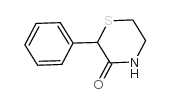
70156-57-9 |
| Literature: Ruano, J. L. Garcia; Martinez, M. C.; Rodriguez, J.H.; Olefirowicz, E. M.; Eliel, Ernest L. Journal of Organic Chemistry, 1992 , vol. 57, # 15 p. 4215 - 4224 |
|
~47% 
70156-57-9 |
| Literature: Ishikawa; Terao; Suzuki; et al. Chemical and Pharmaceutical Bulletin, 1984 , vol. 32, # 2 p. 438 - 446 |
|
~% 
70156-57-9 |
| Literature: Ishikawa; Terao; Suzuki; et al. Chemical and Pharmaceutical Bulletin, 1984 , vol. 32, # 2 p. 438 - 446 |
|
~% 
70156-57-9 |
| Literature: Reeve,W.; Coley,W.R. Canadian Journal of Chemistry, 1979 , vol. 57, p. 444 - 449 |
|
~% 
70156-57-9 |
| Literature: Babitschew; Schokol Ukrainskii Khimicheskii Zhurnal (Russian Edition), 1956 , vol. 22, p. 215 Chem.Abstr., 1957 , p. 423 |
|
~% 
70156-57-9 |
| Literature: Lehr,H. et al. Journal of Medicinal Chemistry, 1963 , vol. 6, p. 136 - 141 |
